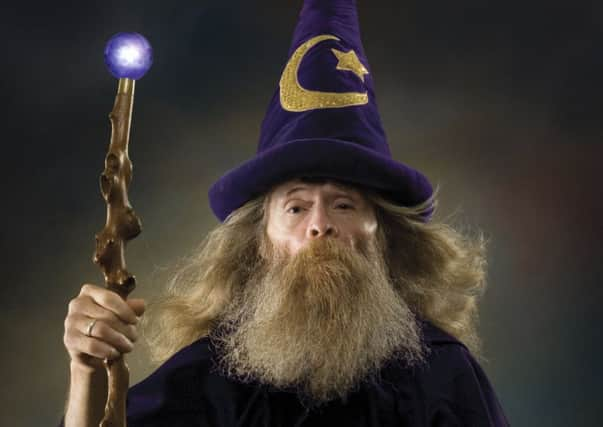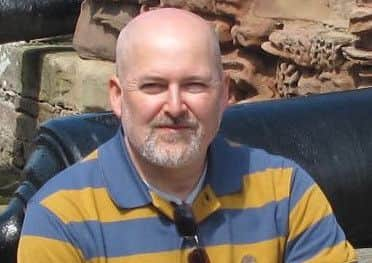Merlin '˜was a Scottish soldier with PTSD'


But now a new book by historian Tim Clarkson claims Merlin was not a made-up character. He was in fact a real Scottish soldier who suffered from severe post traumatic stress disorder (PTSD).
Clarkson, a fellow of the Society of Antiquaries of Scotland, said the true story of Merlin has been lost over time after he suffered a name change in the 12th century. He was not a Welsh druid as commonly believed, but a Christian who fought for a Scottish king more than 1,000 years ago.
Advertisement
Hide AdAdvertisement
Hide AdClarkson said the real Merlin was a man called Llallogan, born in 540 AD near the Solway Firth in Dumfries and Galloway.


Llallogan’s family were members of the landowning aristocracy and, like most high-born young men of the day, he entered military service in his late teens.
According to Clarkson, Llallogan fought in a ferocious battle for his king and watched on in horror as his outnumbered comrades were slaughtered.
Although he survived unharmed, the historian claims he was so traumatised that he fled to the forest of Calidon, which lay beyond the northern edge of the kingdom. There he hid as a fugitive, suffering from severe trauma which would be recognised today as PTSD.
“Wales is probably the place most modern people associate with Merlin,” Clarkson explained. “The idea that the story originated in Scotland is not as familiar.


“I believe he was this Llallogan character. He was there as a warrior, fighting in a battle as a retainer of his lord. The idea he was a warrior is probably not as popular or familiar than he was a poet or a druid. “My view is that Merlin was a warrior, that he was in a battle and had suffered from trauma, he had PTSD, he managed to escape and went to live as a recluse in the woods, where he became something of a local curiosity, stories were then told and the legend started.
“I also believe that he was not a pagan, and a lot of people like to think he was a druid, I think he was in fact a Christian.”
Advertisement
Hide AdAdvertisement
Hide AdClarkson, who studied ancient Welsh poetry as research for his book, said stories of Llallogan and rumours of his strange power of prophecy continued to spread, eventually reaching the ears of Meldred, king of a small realm in the upper valley of the River Tweed.
Clarkson said the Scottish story had been lost over the centuries after Llallogan’s name was changed. He said: “A large part of the reason is due to the fact that the name was replaced by Myrddin, and in the 12th century the name that appeared in poems became Merlin.
Scotland’s Merlin: A medieval legend and its dark age, is published by Birlinn.